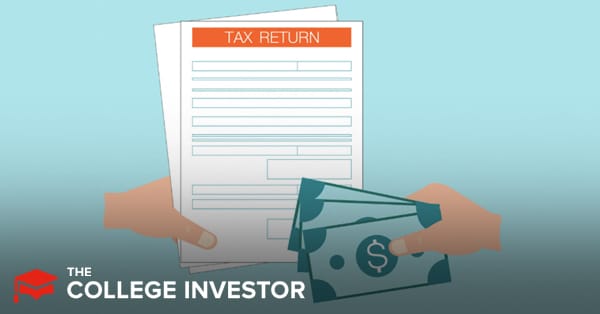
Both the standard deduction and itemized deductions reduce the amount of tax you pay in a given year. So which is better? Should you itemize or should you keep things simple and take the standard deduction? We explain when each option makes sense.
It’s important to note that good tax software will help make the decision for you — by automatically choosing the deduction that gives you the best savings.
If you don’t know what tax software to use, check out our list of the Best Tax Software to get started.
What Is the Standard Deduction?
The standard deduction is a way to reduce your taxable income in a given year. For example, a single person who earned $50,000 in 2024 receives a $14,600 standard deduction. That means that person will pay taxes on $35,400 ($50,000 minus $14,600).
No matter how much or little you earn in a given year, you can claim a standard deduction.
Filing Status | 2023 Tax Year | 2024 Tax Year |
|---|---|---|
Single | $13,850 | $14,600 |
Married, filing jointly | $27,700 | $29,200 |
Married, filing separately (per spouse) | $13,850 | $14,600 |
Head of household | $20,800 | $21,900 |
The standard deduction is standard for a reason. Most people won’t find more than $14,600 worth of expenses that they can itemize. The few people that can itemize are typically people who give generously to charity and live in counties with high property or income taxes.
What Does It Mean to Itemize Taxes?
Itemizing your taxes means that you are using valid personal expenses to claim a deduction that is larger than the standard deduction. When you claim a larger deduction, you pay less in taxes, so it’s obviously better to itemize your taxes when you can.
However, only certain expenses can be itemized. The most common expenses that people itemize include:
- Charitable contributions
- Mortgage interest (on up to $750,000 of mortgage)
- State and local income taxes or sales tax
- Property taxes
- Medical expenses (worth over 10% of your income)
When these types of expenses add up to more than the standard deduction, it makes sense to itemize your tax return.
If you don’t know if you have more itemizations than your standard deduction, your tax software choice will ask you to enter all your information, then show you the difference.
Reducing Taxes Without Itemizing
Itemizing isn’t the only way to reduce your tax bill. There are plenty of legal ways to reduce your taxable income. We have a full list of the best tax breaks that currently exist today.
For example, if you contribute money to a workplace retirement plan — like a 401(k) — or a traditional IRA, you can deduct the contribution from your gross income. That means, the person who earned $50,000 and contributed $5,000 to her 401(k) will pay taxes on $30,400 ($50,000 minus the $14,600 standard deduction minus the $5,000 retirement contribution deduction).
And that’s just one example of many. In addition to retirement savings, you can deduct legitimate business expenses in your Schedule C (such as driving expenses, materials, equipment, and more for your side hustle). Contributing to a health savings account is a great way to save for medical expenses and avoid taxes.
Other deductions that you can claim without itemizing include educator expenses (for classroom supplies), student loan interest, and alimony you’ve paid.
These deductions are called “above-the-line” deductions and are a great way to reduce your tax bill. The “above-the-line” deductions can be combined with your standard deduction, so it makes sense to load up on the above-the-line deductions (where you legally can, of course).
Strategic Planning to “Load Up” When You Itemize
With the new larger standard deductions, figuring out years to itemize can be a challenge. But, you may find it advantageous to itemize in some years and not others. If that’s you, some strategic financial decisions can help you maximize the advantage of itemizing in certain years.
For example, if you buy a house and pay $3,000 in points (prepaid interest), plus $2,000 in mortgage interest, plus $2,000 in property tax, and $8,000 in state income tax, it could make sense to itemize.
But, you can boost that tax advantage by doubling up on charitable contributions. For example, if you donate $5,000 per year, consider donating $10,000 in the year you bought the house (maybe make a donation at the beginning and at the end of the year — making up for the prior or future year missed). That gives you $5,000 extra to itemize. Then in the next year, you can drop to the standard deduction if it makes sense.
Timing big expenses (such as buying a house or having big surgeries or other expenses) with big giving opportunities can help you maximize the benefit of itemizing in the years it makes sense.
Final Thoughts
It can be hard to know whether it makes sense to take the standard deduction or to itemize at first glance. However, tax software makes this decision easy and automatic.
But every tax software package will help you figure out which is right for you by asking you a series of questions. If you don't know what software is right for you, check out our guide to the best tax software.

Hannah is a wife, mom, and described personal finance geek. She excels with spreadsheets (and puns)! She regularly explores in-depth financial topics and enjoys looking at the latest tools and trends with money.
Editor: Robert Farrington Reviewed by: Colin Graves